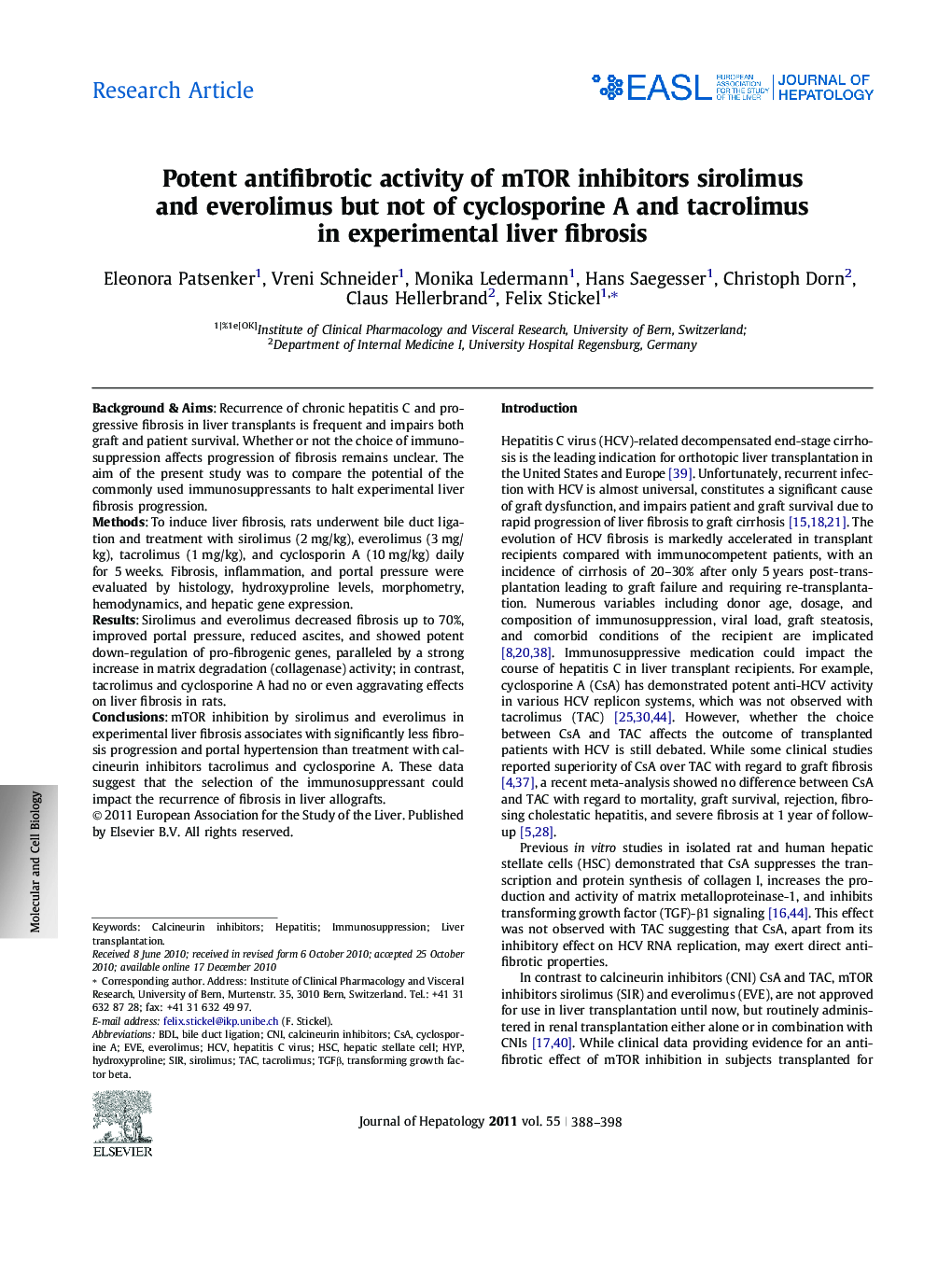| Article ID | Journal | Published Year | Pages | File Type |
|---|---|---|---|---|
| 6108140 | Journal of Hepatology | 2011 | 11 Pages |
Background & AimsRecurrence of chronic hepatitis C and progressive fibrosis in liver transplants is frequent and impairs both graft and patient survival. Whether or not the choice of immunosuppression affects progression of fibrosis remains unclear. The aim of the present study was to compare the potential of the commonly used immunosuppressants to halt experimental liver fibrosis progression.MethodsTo induce liver fibrosis, rats underwent bile duct ligation and treatment with sirolimus (2Â mg/kg), everolimus (3Â mg/kg), tacrolimus (1Â mg/kg), and cyclosporin A (10Â mg/kg) daily for 5Â weeks. Fibrosis, inflammation, and portal pressure were evaluated by histology, hydroxyproline levels, morphometry, hemodynamics, and hepatic gene expression.ResultsSirolimus and everolimus decreased fibrosis up to 70%, improved portal pressure, reduced ascites, and showed potent down-regulation of pro-fibrogenic genes, paralleled by a strong increase in matrix degradation (collagenase) activity; in contrast, tacrolimus and cyclosporine A had no or even aggravating effects on liver fibrosis in rats.ConclusionsmTOR inhibition by sirolimus and everolimus in experimental liver fibrosis associates with significantly less fibrosis progression and portal hypertension than treatment with calcineurin inhibitors tacrolimus and cyclosporine A. These data suggest that the selection of the immunosuppressant could impact the recurrence of fibrosis in liver allografts.
